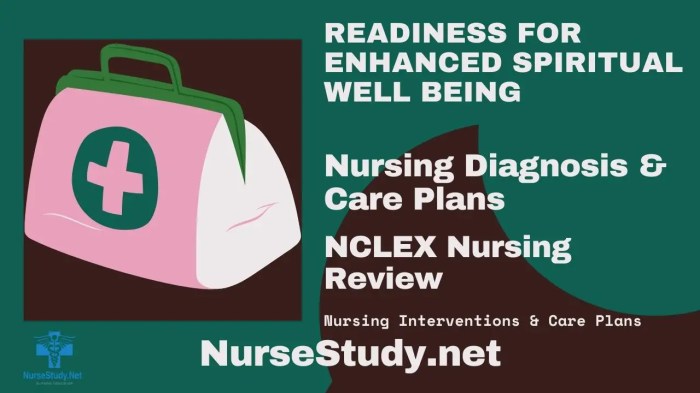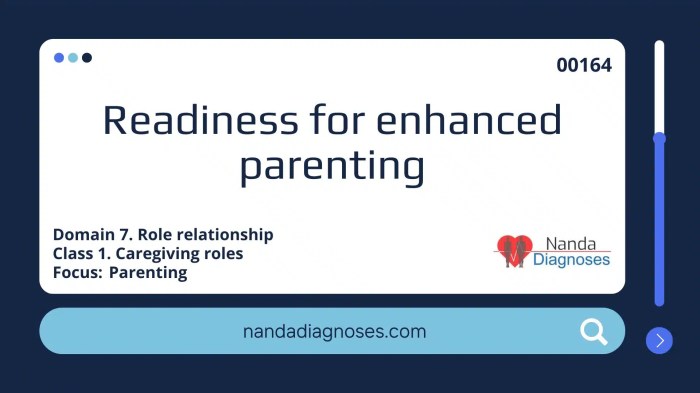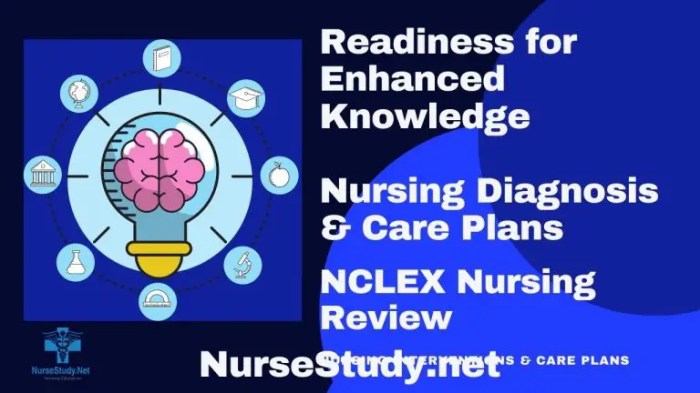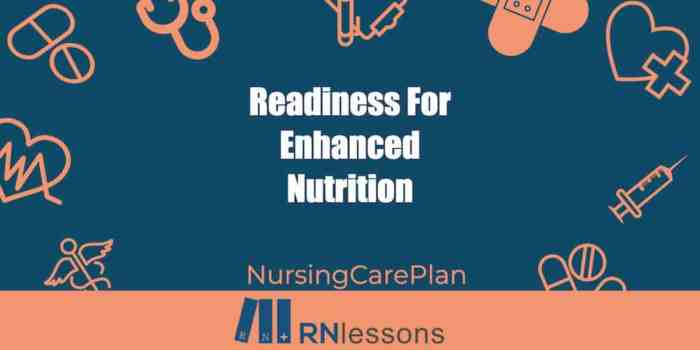Readiness for enhanced parenting nursing diagnosis is a critical aspect of nursing practice, guiding interventions to support parents and promote positive child development. This article explores the concept, assessment, interventions, and ethical considerations related to readiness for enhanced parenting, providing nurses with a comprehensive understanding of their role in empowering parents.
Understanding the factors that contribute to parental readiness, nurses can effectively assess parents’ knowledge, skills, and attitudes. Evidence-based interventions can then be tailored to enhance readiness, improving parental outcomes and fostering healthy child development.
1. Readiness for Enhanced Parenting
Definition and Significance

Readiness for enhanced parenting refers to the state of being prepared and capable of providing optimal care and support to children. It encompasses parental knowledge, skills, and attitudes necessary for effective parenting. Enhancing parental readiness is crucial in nursing practice as it promotes positive child development and family well-being.
Factors Contributing to Readiness for Enhanced Parenting
- Parental age and maturity
- Financial stability and resources
- Social support system
- Mental and physical health
- Parenting knowledge and skills
- Realistic expectations about parenting
Benefits of Enhancing Parental Readiness, Readiness for enhanced parenting nursing diagnosis
- Improved child health and well-being
- Reduced risk of child abuse and neglect
- Enhanced parental confidence and competence
- Strengthened family relationships
2. Assessing Readiness for Enhanced Parenting

Assessment Tools and Methods
Nurses use various tools and methods to assess readiness for enhanced parenting, including:
- Interviews and questionnaires
- Observation of parent-child interactions
- Home visits
- Prenatal and postpartum assessments
Examples of Assessment Questions
- What are your expectations about parenting?
- How do you plan to provide for your child’s physical, emotional, and social needs?
- What resources are available to you for support?
Role of Nurses in Conducting Readiness Assessments
Nurses play a vital role in conducting readiness assessments by:
- Establishing rapport and trust with families
- Collecting comprehensive information about parental knowledge, skills, and attitudes
- Identifying areas where parents may need additional support
- Providing feedback and guidance to parents
3. Interventions to Enhance Readiness for Parenting

Evidence-Based Interventions
Evidence-based interventions to enhance parental readiness include:
- Parent education programs
- Prenatal and postpartum support groups
- Home visitation programs
- Counseling and therapy
- Financial assistance and resource provision
Rationale for Interventions
These interventions aim to:
- Increase parental knowledge and skills
- Improve parental attitudes and beliefs
- Provide emotional support and guidance
- Connect parents with resources and services
Effectiveness of Interventions
Studies have shown that interventions to enhance parental readiness can significantly improve:
- Parental knowledge and skills
- Child health and well-being
- Parental confidence and competence
- Family relationships
FAQ Summary: Readiness For Enhanced Parenting Nursing Diagnosis
What is readiness for enhanced parenting?
Readiness for enhanced parenting refers to the level of knowledge, skills, and attitudes that parents possess to provide optimal care for their children.
How is readiness for enhanced parenting assessed?
Nurses use various assessment tools and methods, such as questionnaires, interviews, and observation, to evaluate parents’ knowledge, skills, and attitudes related to parenting.
What are the benefits of enhancing parental readiness?
Enhancing parental readiness can improve child development, reduce the risk of child abuse and neglect, and promote positive parenting practices.
